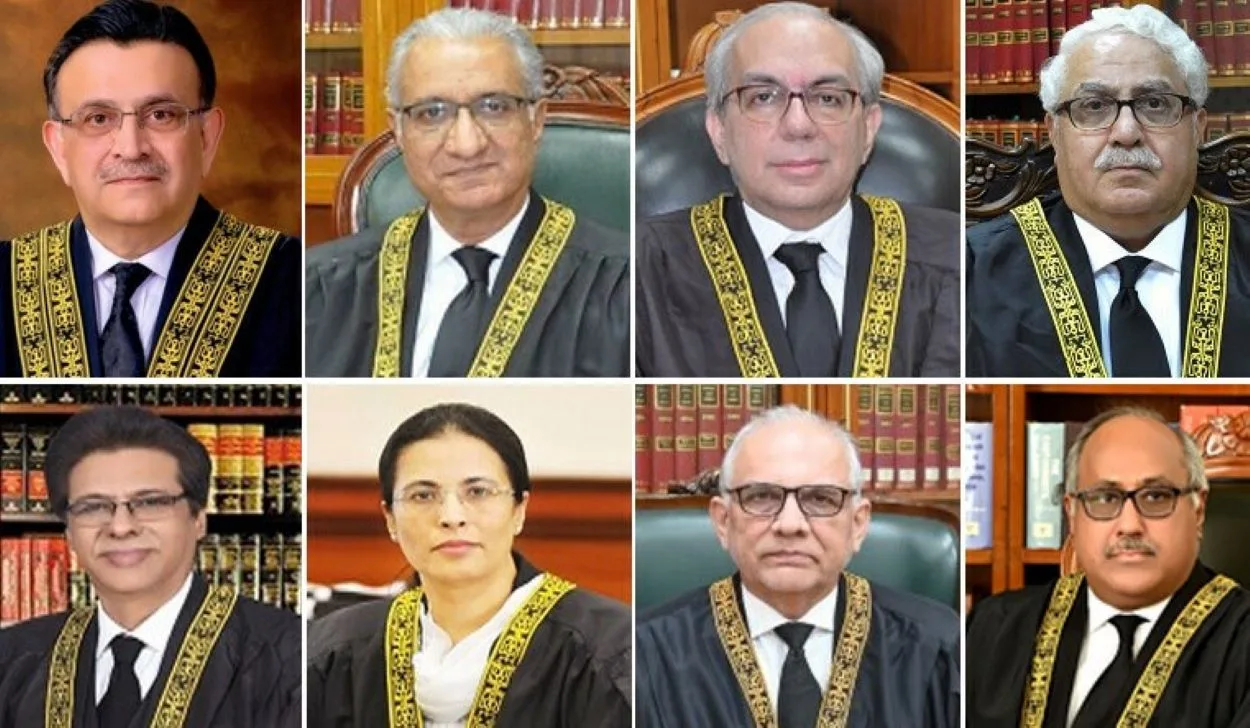The Supreme Court of Pakistan began hearing cases against the proposed legislation limiting the Chief Justice’s power.
The Supreme Court issued notices to the federal government, the Attorney General, political parties, the Pakistan Bar Council, and the Supreme Court Bar Council.
An eight-judge panel of the apex court examined petitions against the Supreme Court (Practice and Procedure) Bill, 2023, which intends to restrict the Chief Justice’s authority to initiate suo motu proceedings and establish benches independently.
Chief Justice Umar Ata Bandial stated that a written order would soon be issued by the eight-member bench and emphasized the importance of the case regarding the judiciary’s independence, already deemed a fundamental right for citizens.
Attorney General Mansoor Awan, petitioner Raja Amir’s lawyer Imtiaz Siddiqui, and other lawyers were in the courtroom during the hearing. Siddiqui argued that the proposed legislation interfered with the judiciary’s independence and was unconstitutional. He maintained that the bill was a proposed act and would become law only after the president’s approval.
Siddiqui further contended that the Supreme Court could review the actions of all state institutions and had the power to invalidate bills passed by Parliament. He questioned whether Parliament had the authority to regulate the judiciary’s internal affairs.
Outside the court, many lawyers gathered, expressing support for the judiciary and opposition to the government. Security was tightened around the Supreme Court, with a heavy presence of law enforcement personnel.
Three petitions have been filed against the bill, arguing that the legislation is based on “bad faith” and is “fraudulent” concerning the Constitution. The petitions request that the Supreme Court declare the proposed bill “unconstitutional” and “illegal” and suspend it until a decision is reached, preventing the president from signing it into law.






